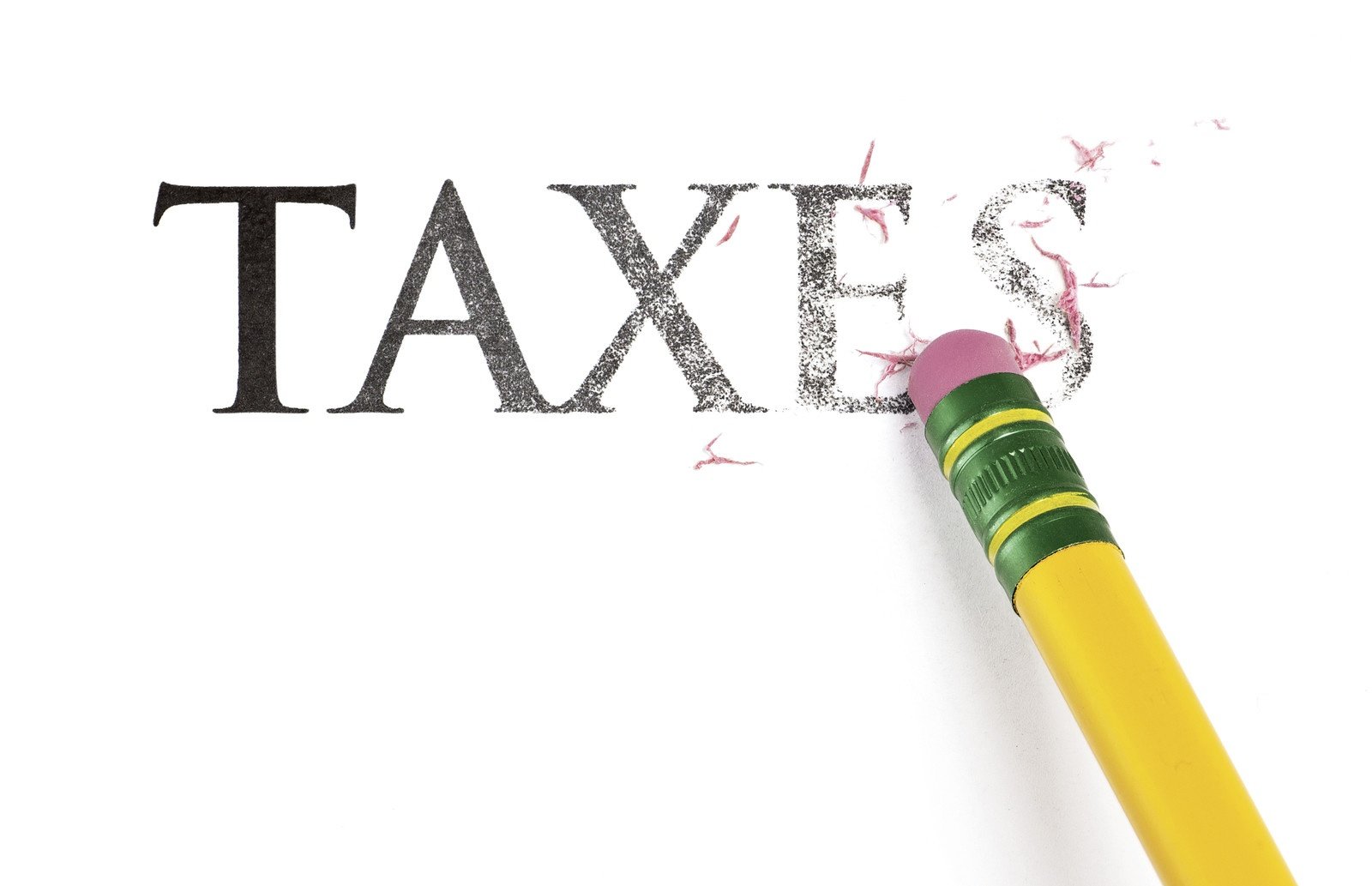WASHINGTON — The Internal Revenue Service announced today that unclaimed federal income tax refunds totaling more than $1 billion may be waiting for an estimated 1 million taxpayers who did not file a 2013 federal income tax return.
IRS Has Refunds Totaling $1 Billion for People Who Have Not Filed a 2013 Federal Income Tax Return
Zinner & Co. Tax Department Taxes - Individual , IRS'Tis the Season for Tax Scams and Fraud
Zinner & Co. Tax Department identity theft , scams , fraud , Taxes - Individual , taxes , IRSTax season is prime time for scammers and cyber criminals. Beyond identity theft, which is seemingly quite commonplace, tax scams have the dubious distinction of rising to the top of the Better Business Bureau's list of scams in 2016.
According to the Better Business Bureau Scam Tracker, the top ten list includes:
- Tax scams
- Debt collections
- Sweepstakes/prizes/gifts
- Online purchase
- Employment
Ohio tax changes on the horizon, sales tax to become even more significant
Zinner & Co. Tax Department Taxes - Individual , income taxIs your business maximizing available exemptions and incentives?
This article appears in Crains Cleveland Business
By Steven A. Dimengo and Richard B. Fry III
Buckingham, Doolittle & Burroughs, LLC.
February 12, 2017 - Gov. Kasich’s quest to lower the Ohio personal income tax rate continues in his latest proposed biennium budget, even in the face of Ohio’s tax revenue falling short of estimates.
Yes, You Can Be Paid Too Much . . . Or Too Little: Understanding Shareholder Compensation
Zinner & Co. Tax Team Taxes - IndividualEmployees of closely held corporations, whether structured as a C corporation or an S corporation, who also serve as shareholders of that same corporation, may find themselves in a precarious position when it comes to determining their compensation.
Patience is a Virtue: Why you need to (still!) wait to receive your tax refund
Eric James Taxes - Individual , Eric JamesFor the taxpayers who went through the painstaking process of sifting through their shoebox full of receipts in the attempt to file their income tax return early, we have to offer you a gentle and friendly reminder that refunds stemming from returns claiming the Earned Income Tax Credit or the Additional Child Tax credit will be delayed until February 15.
Why Your Bag of Used Clothing Isn’t Worth $1,000: The 2016 Noncash Charitable Contribution Fair Market Value Guide
Eric James Taxes - Individual , Eric JamesLike many taxpayers, you may have recently (or routinely) donated a few bags of clothing and household items to a 501(c)(3) charitable organization. The $125 designer jeans, a box of barely-used stuffed animals, and eclectic wall art were sought-after purchases that found their way to your home through your hard-earned dollars. Certainly, your goods were priceless treasures to you and you presumed the same for the lucky charity to which you would donate them.
Published January 24 2017, 12:59pm EST
AccountingToday.com
Tax Return Planning Guide: Download Your Free Ebook
Zinner & Co. tax services , Taxes - Corporate & Business , Taxes - Individual| It's that time of year again when most are thinking about filling out their tax return. Many are sifting through shoeboxes full of receipts, others, wondering if they have a receipt. |
Why You Will Not Receive a Tax Refund Before February 15
Barbara Theofilos, CPA, MBA fraud , Barbara Theofilos , Taxes - Individual , income taxOn December 18, 2015, President Obama signed legislation called “Protecting Americans from Tax Hikes” Act of 2015, or the PATH Act for short.
The PATH Act contained many extensions and changes to existing tax laws. The Act also included a provision which will delay refunds for certain taxpayers. The IRS is now required to not issue a refund to anyone claiming the Earned Income Tax Credit or the Additional Child Tax Credit until February 15. Both of these refunds are considered “refundable credits,” which are essentially treated as additional tax payments, and can reduce one’s tax liability below zero. More, the PATH Act was enacted to give the IRS more time to review refund claims, in an effort to reduce fraud and catch refunds that may be improperly issued.
Do you have questions about the PATH Act, your refund, or income tax preparation? Let's talk! Contact me at btheofilos@zinnerco.com or any of the professionals here at 216.831.0733. We're ready to start the conversation and end the confusion.
6 Things to Keep in Mind if You Receive a Notice from the IRS
Eric James Taxes - Corporate & Business , Taxes - Individual , IRS , Eric JamesFor some, a simple flip through the day’s mail can soon turn into a panic-producing event. Bad news, bill collectors, or worse, a tax notice from the IRS, state department of taxation, or the local tax agency.
About Us

Since 1938, Zinner has counseled individuals and businesses from start-up to succession. At Zinner, we strive to ensure we understand your business and recognize threats that could impact your financial situation.
Recent Blog Posts
Categories
- 1031 Exchange (2)
- 401k (2)
- 529 plan (4)
- ABLE Act (1)
- account systems (3)
- accounting (8)
- Affordable Care Act (8)
- alimony (2)
- American Rescue Plan Act (1)
- Ask the Expert (5)
- Audit and Assurance Department (13)
- audits (8)
- Bank Secrecy Act (1)
- banks (1)
- Barbara Theofilos (6)
- Beneficial Ownership Information (1)
- Bitcoin (1)
- block chain (2)
- BOI (3)
- Bookkeeping (1)
- Brett W. Neate (28)
- budgets (1)
- Bureau of Worker's Compensation (12)
- Business - Management, Issues & Concerns (51)
- business income deduction (3)
- business succession (7)
- business travel expense (3)
- business valuation (5)
- capital gains (2)
- careers (7)
- cash flow (2)
- Charitable Donations (2)
- Child Tax Credit (2)
- Chris Valponi (8)
- City of Cleveland (1)
- Cleveland COVID-19 Rapid Response Fund (1)
- Cleveland Rape Crisis Center (2)
- college (3)
- Community (24)
- Compliance (1)
- Coronavirus (24)
- Corporate Transparency Act (1)
- COVID-19 (30)
- Credit card fraud (5)
- credit reporting (2)
- cryptocurrency (2)
- CTA (2)
- cybersecurity (17)
- dead (1)
- DeAnna Alger (6)
- death (2)
- debt (4)
- deductions (14)
- Deferring Tax Payments (4)
- Department of Job and Family Services (2)
- depreciation (2)
- Digital Tax Payment (3)
- divorce (4)
- DOMA (3)
- Economic Impact Payments (2)
- Economic Injury Disaster Loan (4)
- education (8)
- EIDL (1)
- electronic filing (4)
- Electronic Tax Payments (3)
- Emergency Working Capital Program (1)
- employee benefit plan auditor (1)
- Employee Leave (3)
- Employee or Independent Contractor (6)
- Employee Retention Credit (3)
- employment (2)
- ERC (3)
- Eric James (8)
- Estates, Gifts & Trusts (48)
- expenses (5)
- Families First Coronavirus Response Act (2)
- FASB (1)
- FBAR (1)
- FDIC coverage (1)
- Federal Assistance (4)
- filing (3)
- financial planning (8)
- Financial Planning - College (9)
- financing (3)
- Firm news (119)
- first responders (1)
- FMLA (1)
- foreign assets (3)
- fraud (38)
- FSA (1)
- fundraising (9)
- Gabe Adler (1)
- gift tax (5)
- HDHP (2)
- health care (3)
- home (2)
- home office (1)
- Howard Kass (2)
- HRA (1)
- HSA (5)
- identity theft (34)
- income (1)
- income tax (58)
- independent contractor (1)
- Inflation (1)
- Insurance (7)
- internal control (4)
- international (2)
- Intuit (1)
- investments (4)
- IRS (91)
- jobs (5)
- John Husted (1)
- K-1 (1)
- Laura Haines (3)
- Layoff (2)
- Layoffs (1)
- leadership (3)
- lease accounting standards (1)
- life insurance (1)
- LLC (3)
- Loans (2)
- longevity income annuities (1)
- Lorenzo's Dog Training (1)
- Magic of Lights (1)
- management advisory (3)
- manufacturing (2)
- Matt Szydlowski (3)
- medical (7)
- Medicare (2)
- mergers and acquisitions (1)
- Mike DeWine (2)
- Millennial Concepts (2)
- minimum wage (1)
- NAIOP (1)
- National Defense Act (1)
- non-profit reporting (10)
- non-profits (38)
- not-for-profit (26)
- OATC (1)
- OBBB (3)
- ODJFS (1)
- office (1)
- ohio (13)
- Ohio Accounting Talent Coalition (1)
- Ohio business owners (18)
- Ohio Department of Jobs and Family Services (4)
- Ohio Department of Taxation (7)
- Ohio Incumbent Workforce Training Voucher Program (1)
- Ohio Society of Certified Public Accountants (1)
- One Big Beautiful Bill (10)
- Online Tax Payment (4)
- Operations (2)
- OPERS (1)
- OSCPA (1)
- Overtime (2)
- owners of foreign entities (1)
- partnerships (5)
- passwords (1)
- Paycheck Protection Program (9)
- payroll (8)
- penalties (3)
- pension (2)
- personal finance (2)
- planning (4)
- ppp (7)
- Productivity (5)
- Qualified Business Income (1)
- quickbooks (10)
- real estate (14)
- record retention (2)
- records (2)
- Reporting (1)
- Republican National Convention (1)
- Retirement Planning & IRAs (54)
- Richard Huszai, CPA (5)
- RITA (1)
- Robin Baum (6)
- RRF (1)
- S Corporation (1)
- SALT (8)
- SBA (8)
- scams (14)
- SECURE 2.0 Act (1)
- security (6)
- SharedWorks (1)
- Shutdown (3)
- Silver Linings (9)
- simplified employee pension (1)
- Small Business (5)
- SMB (12)
- Social Media (1)
- social security (4)
- Speaker Series (2)
- spouse (1)
- start ups (8)
- Stay at Home Order (3)
- Steven Mnuchin (1)
- Sue Krantz (6)
- SVOG (1)
- tangible property (1)
- tax (27)
- tax avoidance (12)
- Tax Credit (7)
- Tax Cuts and Jobs Act of 2017 (31)
- Tax Exempt (1)
- Tax Holiday (1)
- Tax Interns (2)
- tax services (28)
- taxes (45)
- Taxes - Corporate & Business (107)
- Taxes - Individual (125)
- Taxes - Planning, Rules and Returns (198)
- TechCred (1)
- technology (8)
- The CARES Act (6)
- The SOURCE (1)
- tiag (3)
- transaction advisory (2)
- Treasury Department (5)
- Trump Account (1)
- tuition (3)
- U.S. Department of the Treasury (1)
- U.S. Small Business Administration (6)
- Unclaimed Funds (1)
- Unemployment Benefits (4)
- Unemployment Insurance (1)
- withdrawls (2)
- withholding (6)
- Workers Comp Billing Changes (1)
- Zinner & Co. (35)
- Zinner News (32)












